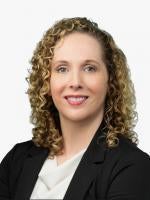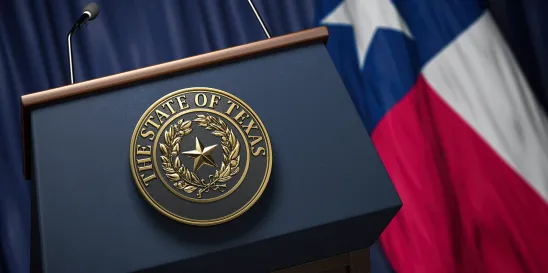By way of background, in May 2023, the Texas Legislature passed Senate Bill No. 14 (SB 14), which prohibits physicians and other licensed medical professionals from providing gender-affirming medical care to minors. Almost immediately thereafter, several Texas families, medical professionals, and organizations filed suit against the state, challenging SB 14’s constitutionality. In August 2023, a Texas state court temporarily enjoined SB 14, finding that the law likely violates the Texas Constitution. Texas appealed, which sent the case to the Texas Supreme Court and put a pause on the injunction. As a result, SB 14 went into effect as planned on September 1, 2023. The case challenging SB 14 remains pending, and oral argument on the appeal of the temporary injunction took place before the Texas Supreme Court on January 30, 2024. (See State of Texas, et al. v. Loe, et al., No. 23-0697 (Tex. Sup. Ct.).)
In the meantime, the Texas Office of the Attorney General (OAG) has used its investigative and enforcement powers under the Texas Deceptive Trade Practices Act (DTPA) to initiate investigations of a hospital and telehealth clinic based outside of Texas in connection with their provision of gender-affirming care to minors. In November 2023, Texas issued a civil investigative demand and a demand for Sworn Written Statement to Seattle Children’s Hospital (Seattle Children’s) in Washington. The demands were issued pursuant to the DTPA and identified the subject matter of the investigation as “possible violations of DTPA sections 17.46(a) and (b) for issues related to misrepresentations regarding Gender Transitioning and Reassignment Treatments and Procedures.” In response, Seattle Children’s filed suit in Texas state court challenging the legality of the OAG’s demands. (See Seattle Children’s Hospital v. Office of the Attorney General of the State of Texas, No. D-1-GN-23-008855 (98th Dist. Ct., Travis County, Tex. Dec. 7, 2023).)
On January 26, 2024, QueerMed, a Georgia-based telehealth clinic that provides gender-affirming care to minors in numerous states (historically including Texas), confirmed that it received a similar request for records from the OAG. QueerMed represented that it stopped providing care to Texas youth upon the passage of SB 14. However, the OAG’s request seeks records dating back to January 1, 2022 – before SB 14 took effect. It remains to be seen how QueerMed will respond to the OAG’s demand.
IN DEPTH
Texas physicians and other licensed medical professionals are prohibited from providing gender-affirming care to patients younger than 18 years of age pending the Texas Supreme Court’s ruling on the judicial challenge to SB 14. In a press release, the OAG stated that it “will continue to enforce the laws duly enacted by the Texas Legislature and uphold the values of the people of Texas by doing everything in its power to protect children from damaging, unproven ‘gender transition’ interventions.”
In response to the enactment of SB 14, some families with transgender children have traveled or relocated to states where gender-affirming care for minors is legal, including Washington. This has coincided with aggressive enforcement efforts by the OAG and a general effort to reach out-of-state providers, as signaled by the OAG’s demands to Seattle Children’s and QueerMed.
Under the guise of a DTPA action, the OAG requested documents and information about Texas residents treated by Seattle Children’s and QueerMed, including information regarding diagnoses, medication, laboratory testing and treatment protocols from January 1, 2022 (before SB 14 took effect) to the present. While the DTPA is broadly designed to protect Texas consumers from “[f]alse, misleading, or deceptive acts or practices in the conduct of any trade or commerce,” it is generally unclear how the DTPA is applicable to the provision of gender-affirming care. (See Tex. Bus. & Comm. Code § 71.46(a).)
In response, Seattle Children’s filed a lawsuit in Texas state court challenging the jurisdiction and investigative authority of the OAG to look into Washington providers. Seattle Children’s argued in its pleading that it does not provide gender-affirming care in Texas (including by telemedicine), has not used public money from the state of Texas in support of gender-affirming care, nor has it received reimbursement from Texas Medicaid or the Children’s Health Insurance Program for gender-affirming care to minors. While it does employ a select number of remote employees in Texas, those employees do not perform clinical services or provide support for Seattle Children’s Gender Clinic. Seattle Children’s further argued that it does not engage in advertising or marketing in Texas regarding gender-affirming care. In sum, Seattle Children’s argued that “[a] Texas resident’s unilateral choice to obtain healthcare in Washington is insufficient to confer specific jurisdiction on Seattle Children’s.” The crux of Seattle Children’s argument is that the OAG’s demands represent an inappropriate use of the DTPA and an unconstitutional attempt to investigate and reduce potential interstate commerce and travel for Texas residents seeking care in other states.
Seattle Children’s filed an amended petition on January 5, 2024, in which it asserted that it is prohibited from responding to the OAG’s demands by federal and state privacy laws, including the Health Insurance Portability and Accountability Act of 1996 (HIPAA) and a Washington State court order. The Washington State court order, entered on December 22, 2023, bars Seattle Children’s from releasing records regarding the provision of gender-affirming treatment or related mental health treatment to the OAG in the absence of individual, informed patient consent. Seattle Children’s further contends that the Washington State court order binds the Texas state court under the US Constitution’s Full Faith and Credit Clause.
The OAG has signaled aggressive enforcement of SB 14 by initiating previous investigations into Texas-based providers, including Dell Children’s Medical Center in Austin and Texas Children’s Hospital in Houston. However, the demands to Seattle Children’s and QueerMed represent a clear attempt by the OAG to step up its enforcement efforts by attempting to target out-of-state providers.
KEY TAKEAWAYS AND PRACTICAL IMPLICATIONS
- The challenge to SB 14 currently before the Texas Supreme Court is expected to be lengthy. Until the Texas Supreme Court issues a decision regarding SB 14’s validity, the law remains in effect, and Texas providers should continue to expect aggressive enforcement by the OAG.
- The OAG is likely to issue additional investigative demands to out-of-state providers of gender-affirming care to minors, including telehealth providers. Given this, out-of-state providers will need to consider the cost of litigation in deciding whether to provide care to residents of states that have similar bans in effect.
- In response to the wave of legislation in Republican-controlled states outlawing gender-affirming care to minors, several states, including California, Colorado, Oregon and Washington, have enacted or proposed laws that seek to protect patients who travel out of state to receive such care by preventing authorities from complying with subpoenas, arrest warrants and other requests from states that have banned such treatments.
- Providers should continue to follow the litigation initiated by Seattle Children’s, including subsequent appeals, as it will likely inform the viability and scope of future requests by the OAG to out-of-state providers.
- Any provider or facility that receives an investigative demand or other related correspondence from the OAG should immediately engage legal counsel and carefully consider its response.






 />i
/>i

